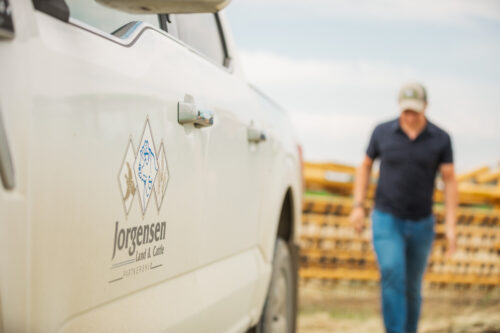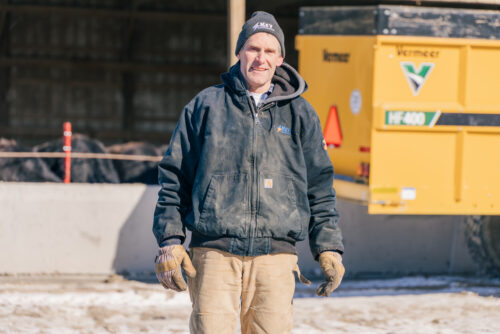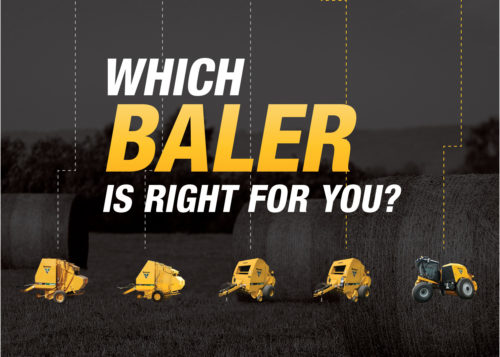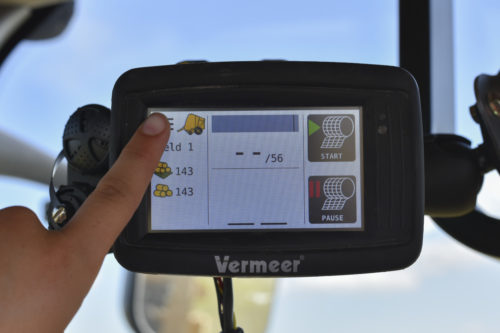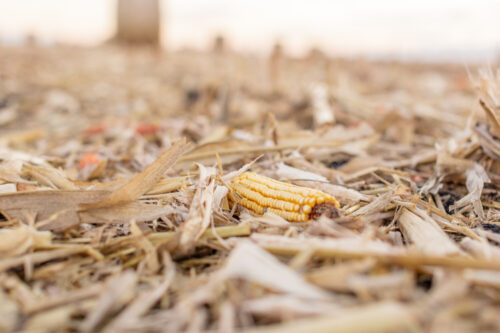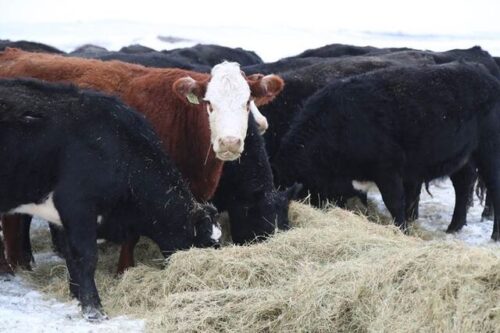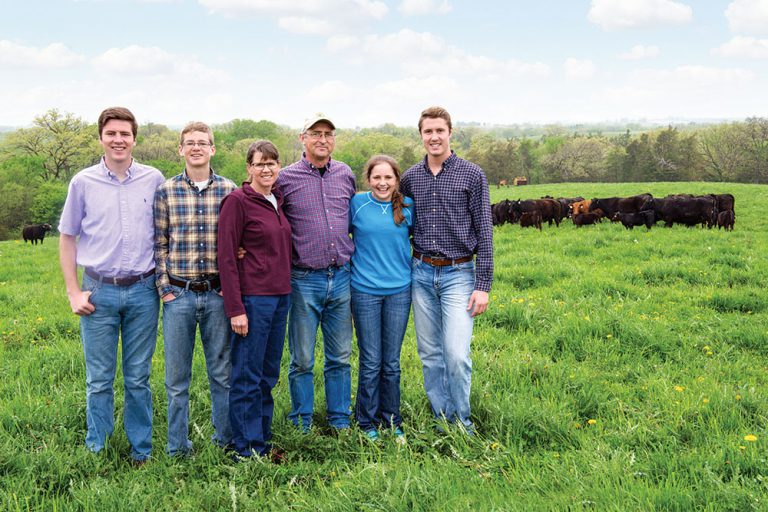
A Story of Family and Farming: Building a Bred Heifer Business
June 2017
The son of a fourth-generation farmer-rancher, Charlie Peters seemed destined to help guide his family farm (located in Jackson County, Iowa) through a fifth. Not that he didn’t try to get away. After graduating from Iowa State University, Charlie and his wife Jenni moved to Colorado, where he worked for the North American Limousin Foundation and she for the Cattlemen’s Beef Board.
After five years in the Rocky Mountain State, the allure of life on the farm proved unshakeable. It was a “God moment,” said Jenni, who grew up on a large-scale cow-calf operation in the flinthills of Kansas, before attending Kansas State University where she met Charlie. Even a lucrative job offer to Charlie from a niche beef company in Montana couldn’t dissuade the young couple from resuming life on the farm.
“At the time, we were starting our family and we were tired of all the traveling for our jobs,” Charlie said. “We knew the farm is where we wanted to be.”
DEVELOPING THEIR NICHE
Initially Charlie and Jenni made their way home, they joined the Peters Family Farm. At the time, they raised cattle, farmed and put up hay with Charlie’s brother Steve and his wife Sherry. The brothers and their families worked alongside Charlie and Steve’s parents, Floyd and Lavonne, truly making it a family venture.
A while later Charlie and Jenni also started their own business, Peters Beef Genetics. The couple knew succeeding in a competitive industry meant finding that one thing they could do better than most. For them, that one thing was raising bred heifers. For the last 19 years, they have been raising weaned heifer calves into bred heifers, which are sold to customers in surrounding states.
“We get them in the fall, fresh-weaned, and we develop them over the winter and sell them the following year,” Charlie said. “We will usually end up with about 450 heifers that we sell every winter.”
Convenience, performance and longevity are the three words the Peters family use to describe their bred heifer program.
"Our goal is to generate repeat customers and this means our customers have to be happy with their purchase."
“We are confident that if our heifers do well in these three areas, they will have the greatest chance to be around in the cow herd for an extended time,” Charlie said.
With the Peters family’s strong animal production background and their business reputation on the line, they do everything they can to ensure they are raising breeding cattle with the maternal genetics and instincts their customers desire.
“Thirty to forty-five days before we start synchronizing the heifers, we run them all through a chute and do pelvic and repro scores, and those who don’t hit our threshold get sent to the feed yard,” Charlie said.
The Peters believe sorting and culling heifers that aren’t going to be productive cows helps put their operation at the forefront of producers.
When it comes time to sell the bred heifers, the Peters sell about half of them off the farm and the other half at the local Tama Livestock Auction Sale Barn.
“Marketing and communications is always something we need to do better at,” Jenni said.
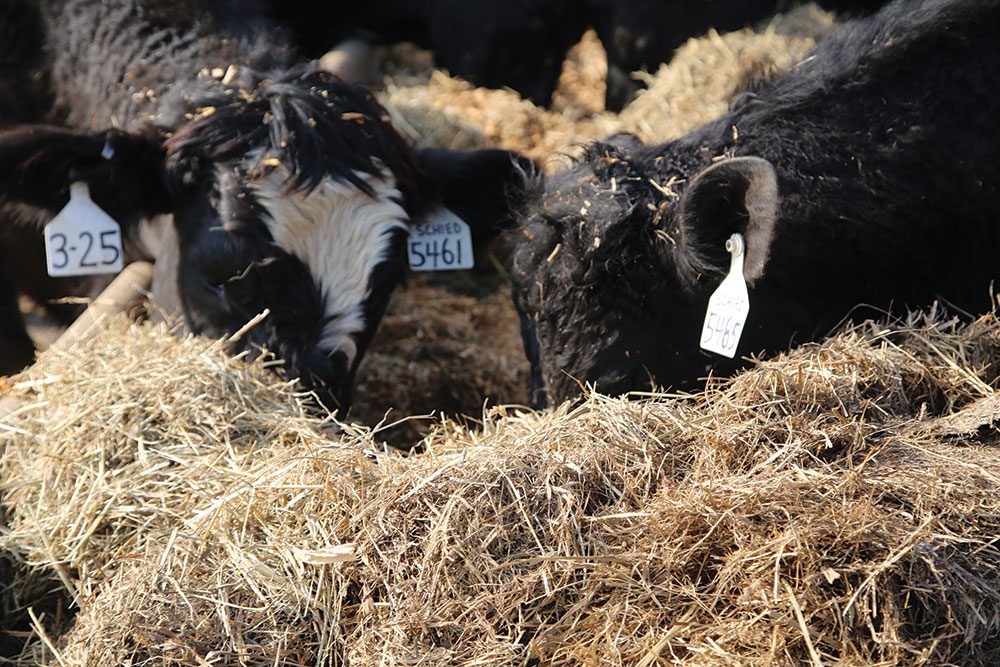
That is where the next generation is starting to help. For several years Charlie and Jenni have written letters to prospective and returning customers in addition to some print advertising. A couple of years ago, their kids started helping promote the operation through social media.
While Jenni says she has a love-hate relationship with Facebook, over the years she has started to see the value in it.
“Helping promote our operation through Facebook and other social media channels gives our kids a way to be involved, especially the ones at college,” Jenni said. “We use our Facebook page (Peters Beef Genetics) as a way to not only promote our genetics and bred heifer operation, but we also use it to help spread a positive light about animal agriculture.”
The Peters Family Beef Genetics bred heifer program is indeed a long-term venture, according to the family.
“Our goal is to generate repeat customers, and this means our customers have to be happy with their purchase,” Charlie said. “A lot of our new customers come from word of mouth. For example, our banker might know of someone who is looking to purchase some new heifers to start a herd, so he will often refer them to us. Same goes for our vet and feed guy.”
BALING IN BELLEVUE
High-quality, productive cows require high-quality, nutrient-rich feed. For the Peters, that means making about 2,500 round bales a year. Thanks to Charlie’s late father, Floyd, the Peters family has been a Vermeer customer since the early days of round balers. During his time, Floyd did the majority of the baling for the family, which Charlie figures could be close to 50,000 bales.
“I remember the first summer my sister came back from college in 1974. That was the first summer we had a round baler; it was a Vermeer 605C,” Charlie said. “We used to have to stack thousands of small square bales in our barn, but everything became a lot different with the invention of the round baler.”
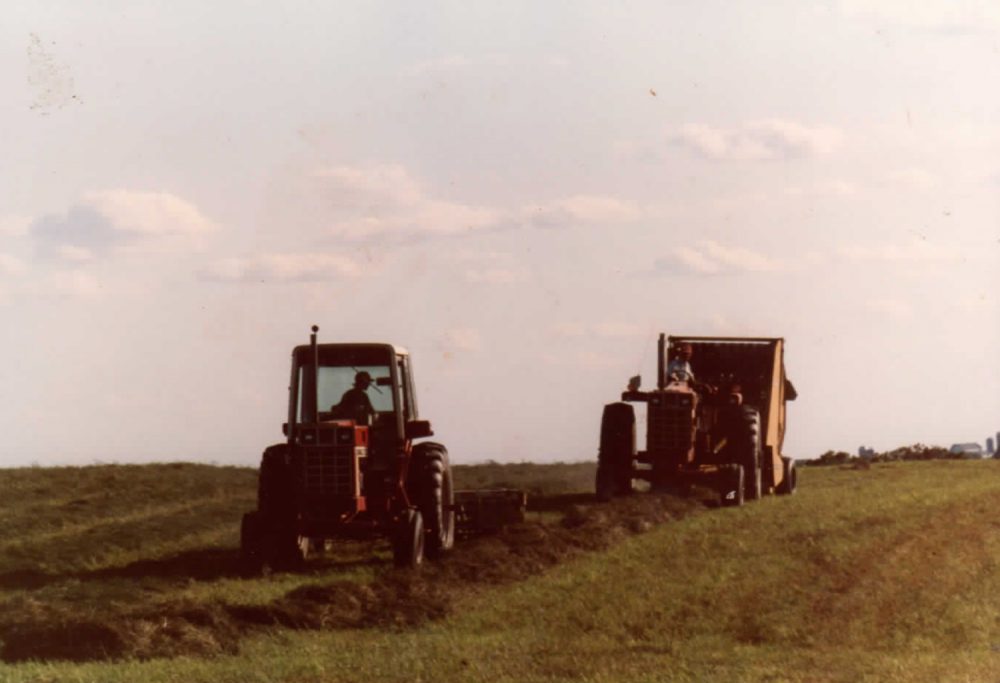
Since that summer, the Peters family has owned C, F, H, L, XL, M and Super M balers from Vermeer.
“We’ve had all Vermeer equipment over the years, except for maybe one rake,” Charlie said.
Putting up so many bales in a year, it is important to the Peters family that the equipment is ready to go when it’s time to make hay.
“There are pieces of equipment on the farm that you need to do preventative maintenance on,” Charlie said. “Every day after we use our baler, it gets blown off so there isn’t hay or dirt just sitting there. It also gets greased and oiled regularly.”
The Peters family relies on their local Vermeer dealer, Breeden Sales, during hay season.
“They know the ins and outs of all the Vermeer products,” Charlie said. “If you do have a problem, their knowledge from the parts and service side of it makes it easy to get back in the field.”
High-quality cattle require high-quality feed, but it isn’t always as easy as that. Charlie and Jenni agree that weather is their biggest challenge when it comes to putting up hay. They use various methods to minimize Mother Nature’s control such as tedding hay, wrapping higher moisture crops and by utilizing a mower conditioner.
“Since we are feeding everything we produce, we really can’t have any bad hay,” Jenni said. “We aren’t at dairy level and that isn’t feasible, but we try and put up the best we can.”
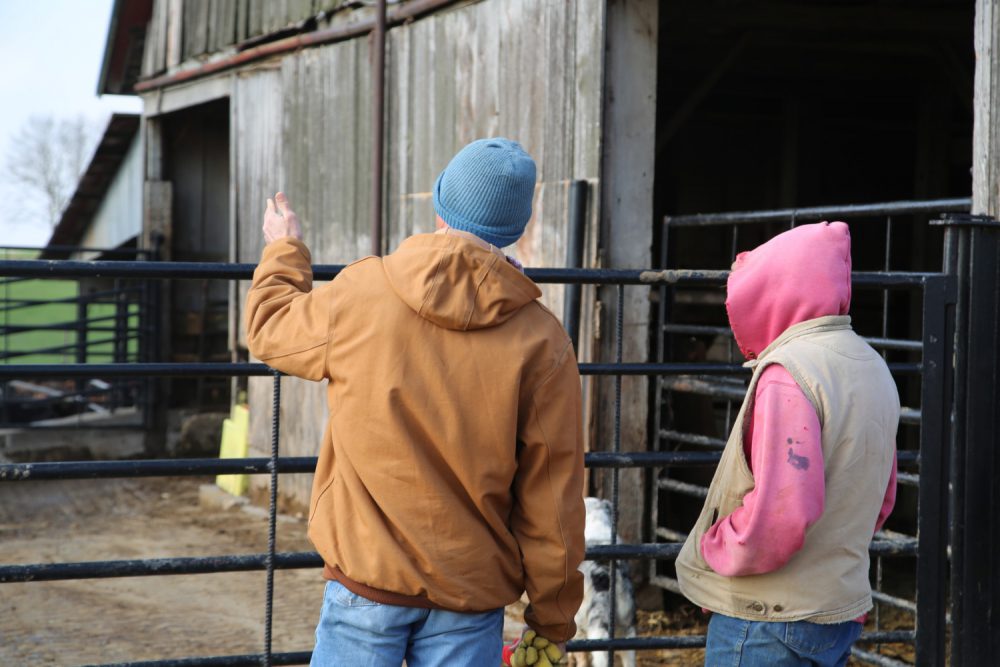
BUILDING A FAMILY WHILE BUILDING A BUSINESS
Their cattle business and all that comes with it is truly a family venture. The proud parents describe each of their four children as having different talents, skills and roles on the farm.
“Everyone has a job, everyone has a gift and everyone can contribute to make the farm work well,” Jenni said. “The kids know there are responsibilities on the farm and that the farm is what pays the bills, gives us a house and food on our plate.”
Whether the kids will come back to take over the farm after college is still unknown.
“That is one of the things with our kids that we haven’t pushed or talked much about,” Jenni said. “If they want to do it, they need to make sure that when they do they are ready to stay.”
Much like watching their own children grow up on the farm, Charlie and Jenni have enjoyed helping others get started in the business.
“We try and check up on our customers, especially the ones just getting started,” Charlie said. “If they are new to running cows, especially bred heifers, we will send them with a checklist of things to watch for when it comes time for calving, along with a list of vaccinations they should give the calves.”
THE NEXT CHAPTER
Hard work, life-long learning, a little bit of luck and a lot of passion have helped the Peters family make their way in this industry. One thing is for sure: Charlie and Jenni Peters’ love for each other and agriculture allowed them to raise their children alongside their livestock and crops. And what better way of life is there?

